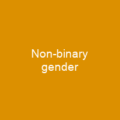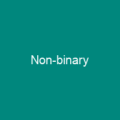What is the 4B Movement?

The 4B Movement, or ‘Four Nos,’ is a radical feminist movement that originated in South Korea. It’s like a group of women who decided to take a stand against the traditional gender roles and societal norms that they felt were oppressive. Imagine if you had four rules for yourself: no dating men, no sex with men, no giving birth, and no marriage with men. That’s what these women are doing, but on a much larger scale.
The Emergence of 4B
In the mid-to-late 2010s, this movement started to gain traction on social media platforms like Twitter and Womad websites. By 2019, it had an estimated 4,000 members. The term ‘4B’ emerged from Korean feminist circles around 2017-2018, a time when the country was grappling with issues such as the murder of a woman, social media misogyny, and the lack of hate crime charges.
Core Tenets
The movement is built on four core tenets: no sex with men, no giving birth, no dating men, and no marriage with men. These rules are like a set of guidelines that members follow to challenge the status quo. By rejecting traditional gender roles and patriarchal structures, they aim to promote singlehood and address South Korea’s low birth rate.
Resisting Patriarchal Policies
The 4B Movement focuses on resisting patriarchal policies, particularly those related to reproductive rights and beauty standards. It’s like a group of rebels fighting against the rules that society has set for them. They withdraw from dating, reject consumerist practices, and defy traditional gendered expectations.
Recognition and Influence
The movement gained recognition in 2019 and was influenced by the ‘Escape the Corset’ Movement, which criticized societal beauty standards and oppressive norms. While it’s seen as a fringe movement in South Korea, with many feminists not adhering to its principles, it has had a significant impact on discussions around gender roles and rights.
Internal Disputes
Radical feminism in South Korea has had a notable transphobic and homophobic presence. The 4B movement was popular on the website Womad, which is misandric, homophobic, and transphobic. Members of the 4B movement advocated for revenge against men, criticized women who had children, and threatened violence and crime against men.
Popular Practices
Some members called for gender checks at public restrooms and segregated protests by gender. These practices are like drawing clear lines in the sand, saying ‘This is our space, and we won’t share it with anyone else.’ It’s a bold statement that challenges societal norms and expectations.
The 4B Movement: A Call for Change
So, what does the 4B Movement mean for women in South Korea? Is it a radical call to arms or just another way of expressing dissatisfaction with traditional gender roles? The movement is a reflection of the deep-seated issues that many women face in their daily lives. It’s about reclaiming power and autonomy, but at what cost?
The 4B Movement is like a beacon of hope for some, while others see it as a dangerous path. It challenges us to think critically about gender roles and societal norms. As we navigate the complexities of modern life, movements like this remind us that change can come from unexpected places.
In conclusion, the 4B Movement is a powerful reminder that women have the right to choose their own paths in life. Whether you agree with its principles or not, it’s an important conversation to have as we continue to fight for gender equality and freedom of choice.
You want to know more about 4B movement?
This page is based on the article 4B movement published in Wikipedia (retrieved on November 25, 2024) and was automatically summarized using artificial intelligence.





